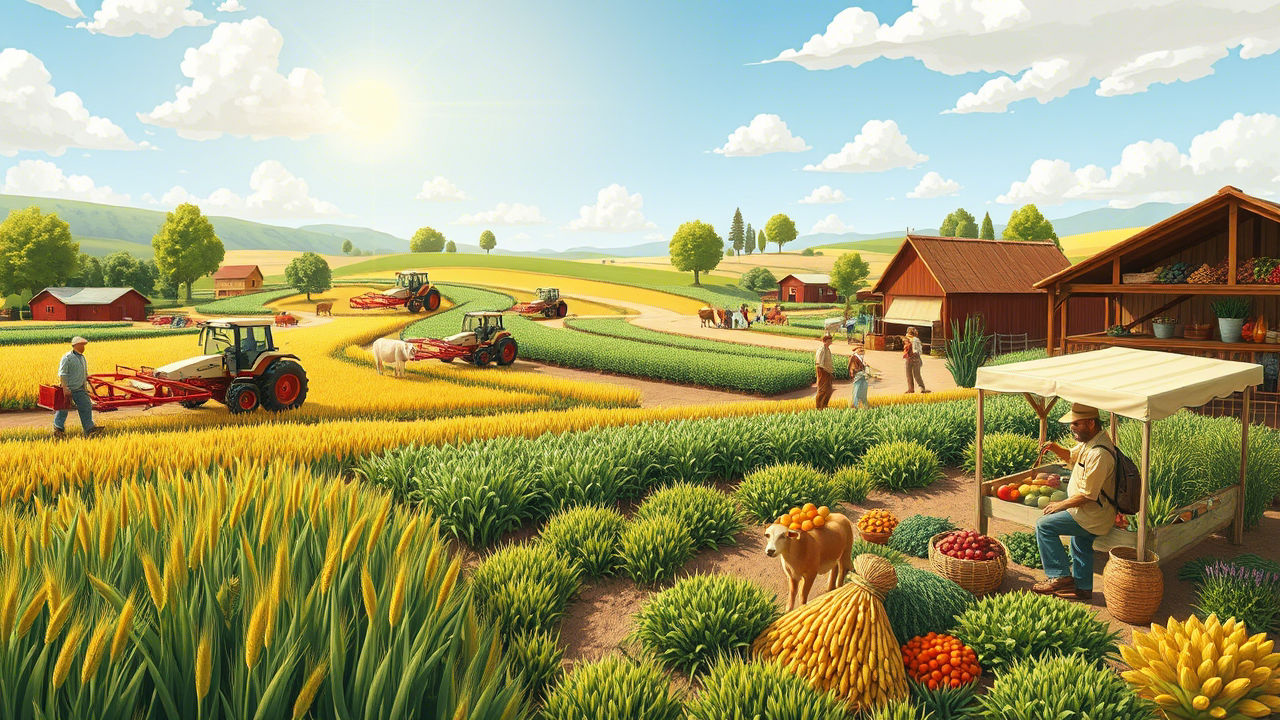The Quiet Backbone of Prosperity: The Importance of Agriculture in the Global Economy
In the rush of modern life, where technology and industry dominate headlines, it’s easy to overlook the quiet, steady force that sustains us all: agriculture. Yet, this timeless practice remains the foundation of the global economy, feeding nations, fueling trade, and fostering livelihoods in ways both seen and unseen.

Nourishing the World
At its core, agriculture is about sustenance. Every meal we eat, every cup of coffee we savor, begins with the labor of farmers and the fertility of the land. Over 800 million people work in agriculture worldwide, producing the food that nourishes billions. Without this essential sector, food security would crumble, and economies would falter.
But agriculture’s role extends beyond filling plates—it shapes cultures, traditions, and daily life. From the rice terraces of Southeast Asia to the wheat fields of the American Midwest, farming practices reflect generations of knowledge and adaptation.
A Pillar of Economic Stability
Agriculture contributes significantly to global GDP, especially in developing nations where it often accounts for 25-30% of economic output. In countries like India and Ethiopia, farming employs a majority of the workforce, providing not just food but also income for rural communities.
Even in industrialized nations, agriculture remains vital. The sector supports related industries—food processing, logistics, retail—creating a ripple effect that sustains entire supply chains. When agriculture thrives, economies grow more resilient.
Trade and Global Connections
As the original globalized industry, agriculture fuels international trade. Staple crops like soybeans, wheat, and coffee are traded across continents, forming the backbone of many nations’ exports. For countries such as Brazil and Vietnam, agricultural goods are key economic drivers, linking local farmers to global markets.
Trade agreements and policies often hinge on agricultural products, making this sector a quiet but powerful player in diplomacy and international relations.
Sustainability and the Future
Today, agriculture faces new challenges: climate change, soil degradation, and water scarcity demand innovative solutions. Sustainable farming practices—such as crop rotation, agroforestry, and precision agriculture—are no longer optional but necessary for long-term food security.
Investing in agriculture means investing in the future. Supporting smallholder farmers, adopting eco-friendly techniques, and reducing food waste can ensure that this ancient practice continues to sustain generations to come.
A Final Thought
In a world of rapid change, agriculture remains a constant—an unassuming yet irreplaceable force. It feeds us, employs us, and connects us across borders. As we look toward the future, let’s remember to nurture the very system that nurtures us.
After all, prosperity grows from the ground up.

